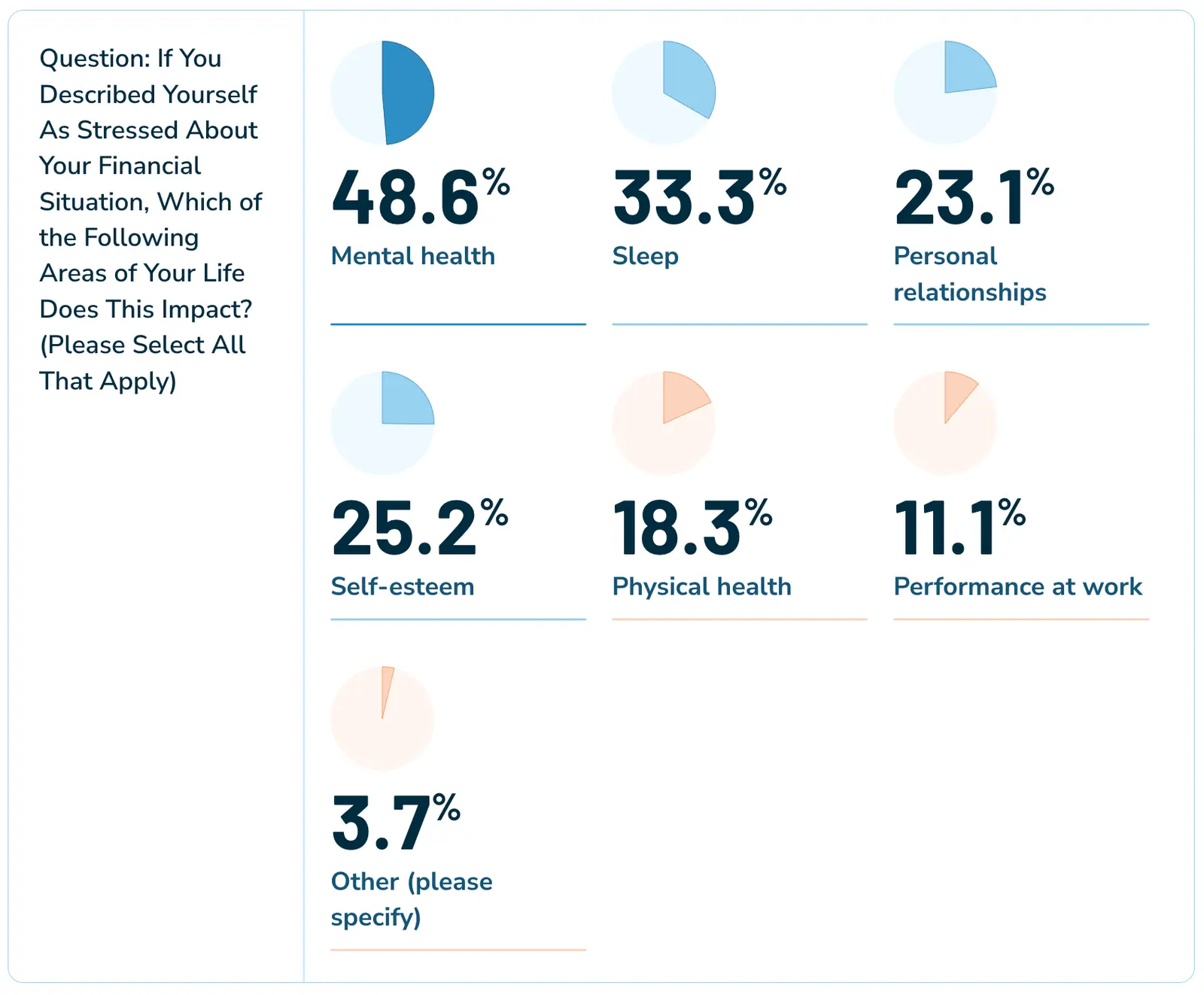Vestwell Savings Industry Report: The Rise of Education Savings as a Workplace Benefit

Last Updated: February 14, 2025
With over 40 million U.S. adults managing student loan debt, many employees are wondering, "Should I prioritize paying off my student loans or focus on saving for retirement?"
The decision between addressing immediate debt obligations or long-term retirement goals is not an easy one. Vestwell surveyed 1,200 savers across the United States for our annual “Vestwell Savings Industry Report.” We learned that employees view student debt as a significant obstacle to retirement savings. They are feeling the financial pressure, and they’re turning to their employers for support.
In this article, we explore the current state of student debt and discuss the opportunities employers have to provide support for both employees with student debt and those saving for future educational expenses. Additionally, we leverage key insights from Vestwell’s saver survey to propose strategies for updating your workplace benefits package to meet the evolving financial needs and priorities of your employees. Let's dive in.
The State of Student Debt
Currently, more than 45 million Americans are shouldering some form of student debt. The average student borrows more than $30,000 to pursue a bachelor’s degree, and as college costs rise, students and their families are borrowing more.
For many graduates, the effects of student debt extend beyond the immediate pressure of repayment. It can impact long-term financial goals, including retirement savings. According to our survey, 93% of employees with student loans say that their student debt has affected their ability to save for retirement.
This challenge is not merely financial but also emotional, often leading to stress and anxiety about financial stability. 88% of savers with student loans are stressed about their finances. In turn, this financial stress can create a cycle that impacts other areas of life, from personal relationships to performance at work. These findings highlight the urgent need for comprehensive solutions, including student loan repayment assistance and education savings accounts.

Student Loan Repayment Assistance
74% of those with student loans agree that they would be more likely to continue working for an employer that offered student loan-related benefits.
Employees are increasingly seeking workplace benefits that offer support for managing and repaying student loans. A large majority (89%) of respondents with student loans believe that having a student loan repayment benefit in the workplace is at least somewhat important. This sentiment is further echoed by the fact that 74% of those with student loans agree that they would be more likely to continue working for an employer that offered student loan-related benefits.
To empower businesses to offer benefits that truly resonate with their employees’ needs, Vestwell offers Student Loan PayDown through Gradifi. This offering enables employers to make direct contributions to their employees’ student loans. Student Loan PayDown provides tangible relief for your workforce by helping them pay down their student debt faster.
Student loans can significantly hinder individuals' ability to save for retirement, and there is a strong call for employer support. By incorporating Student Loan PayDown into your workplace benefits package, you can align your offerings with the priorities of the modern workforce, helping you attract top talent in a competitive labor market.
529 Education Savings Accounts: Saving for the Future
Employees are also seeking employer support when preparing for future educational expenses. 529 Education Savings Accounts are tax-advantaged savings plans sponsored by states, state agencies, or educational institutions. They are designed to encourage saving for future education costs, such as tuition, room and board, and books and supplies.
By partnering with your state’s 529 Program to offer education savings as a workplace benefit, you can help your employees prepare for education-related expenses. This proactive approach not only supports employees and their family's pursuit of educational goals but also enhances the attractiveness of a company’s benefits package, making it a key factor in recruitment and retention strategies. Among employees currently saving for educational expenses, 73% placed some level of importance on having a 529 Education Savings Account in their workplace benefits package.
73% placed some level of importance on having a 529 Education Savings Account in their workplace benefits package.
Vestwell’s College SaveUp offering through Gradifi takes this valuable workplace benefit to the next level by enabling employers to contribute directly to their employees' 529 Education Savings Accounts. By integrating College SaveUp into your benefits package, you can have a positive impact on your team's ability to manage and plan for education-related expenses for themselves and their families.
Conclusion: The Future of Workplace Financial Wellness
Modern savers are looking beyond traditional retirement accounts to more diverse financial wellness solutions. By integrating student loan repayment options and 529 education savings plans into their workplace benefits package, businesses can attract talent, enhance employee retention, and demonstrate a lasting commitment to the financial health of their team.
Click here to view the full “Vestwell Savings Industry Report” and learn more about the saving trends that are shaping the future of workplace financial wellness.